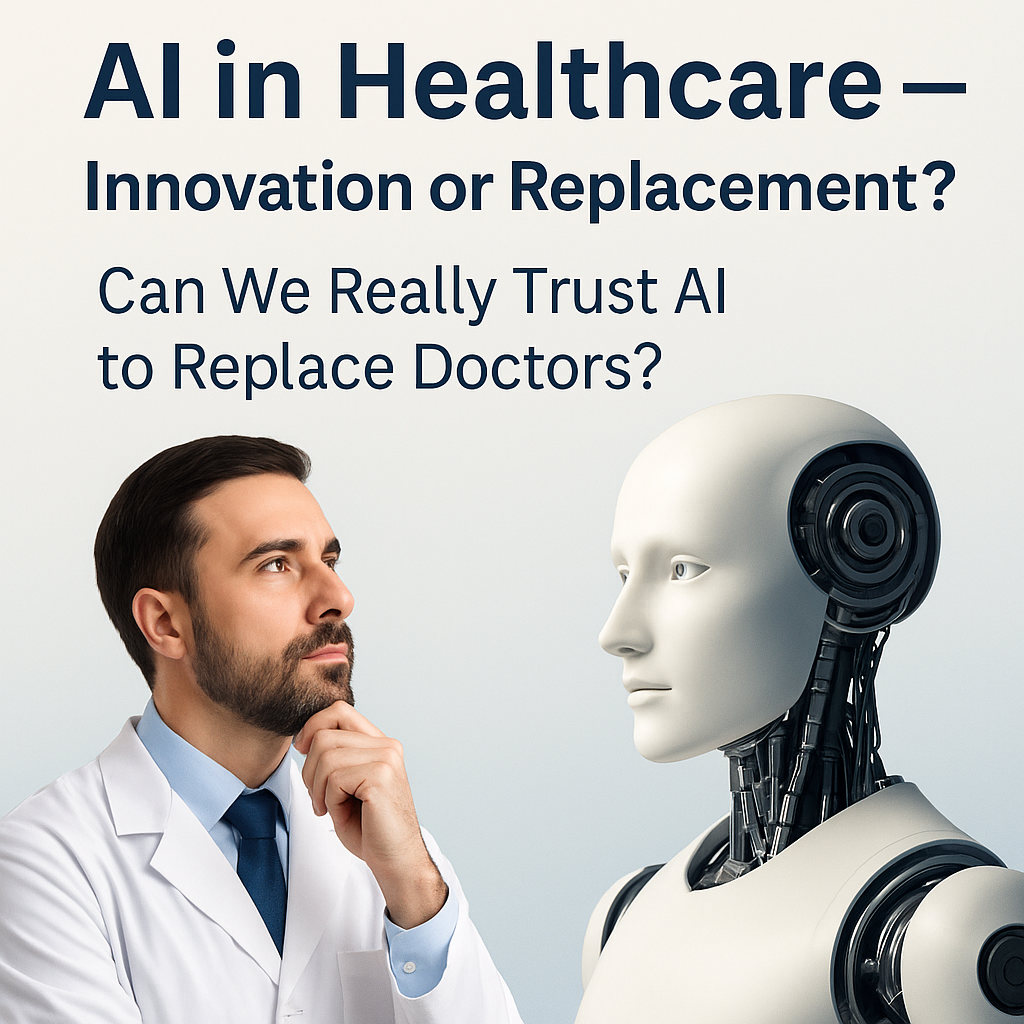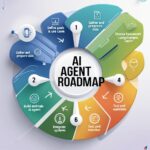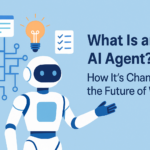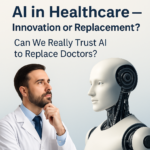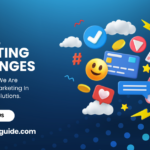AI in Healthcare: In the rapidly evolving world of technology, artificial intelligence (AI) is becoming a transformative force across multiple sectors. Among the most impactful areas is healthcare, where AI promises to revolutionize the diagnosis, treatment, and management of health conditions. While the innovations are exciting, they raise critical ethical and practical questions: Is AI an innovation to support doctors, or is it positioning itself to replace them? Can we truly trust AI to handle our health and well-being?
This article examines the extent of AI’s involvement in healthcare, its benefits and limitations, as well as the ethical concerns and potential future implications for both medical professionals and patients.
The Rise of AI in Healthcare
Artificial Intelligence in healthcare isn’t a futuristic concept anymore. It is already here, and it’s growing rapidly. AI applications are being used in various areas:
- Diagnostics: AI algorithms can analyze medical imaging (like X-rays, MRIs, and CT scans) faster and more accurately than human radiologists in many cases. Systems like Google’s DeepMind have demonstrated success in diagnosing over 50 eye diseases with an accuracy matching that of top doctors.
- Drug Development: AI models are being used to simulate how different drugs interact with the human body, drastically reducing the time it takes to bring a new drug to market.
- Predictive Analytics: AI can mine patient data to predict the likelihood of diseases, hospital readmissions, or complications in chronic illnesses, enabling preventative care.
- Virtual Assistants and Chatbots: These tools are helping patients schedule appointments, manage medications, and get answers to common health questions, easing the burden on healthcare professionals.
- Robotic Surgery: Robotic arms guided by AI are used in surgeries for higher precision and reduced human error.
In short, AI is not just enhancing healthcare delivery — it’s redefining it.
How AI is Being Used Around the World
Countries around the globe are adopting AI-driven healthcare solutions at different scales:
- United States: Hospitals like Mayo Clinic and Cleveland Clinic are investing in AI for clinical trials and precision medicine.
- United Kingdom: The NHS is using AI for managing patient records and diagnostic services.
- China: AI is helping address doctor shortages by automating diagnostics in rural areas.
- India: With a huge population and limited doctors, AI is being used in telemedicine and diagnostics.
This global embrace of AI indicates its potential not just as a tool but as a new paradigm in global health management.
Can AI Replace Doctors?
This is one of the hottest debated questions in healthcare today. The short answer? Not entirely.
What AI Can Do Better Than Doctors
- Process Huge Data Volumes: AI can instantly analyze and learn from millions of medical records, something human doctors simply cannot do.
- Consistency: AI algorithms provide consistent results and are not subject to fatigue, bias, or emotional stress.
- Speed: AI systems can perform complex calculations and produce results in seconds.
What AI Cannot Do
- Empathy and Communication: A good doctor listens, understands emotions, and explains medical decisions in a compassionate way — something AI still can’t replicate.
- Holistic Decision Making: Human doctors consider subtle cues, social factors, and patient histories in nuanced ways that AI cannot.
- Responsibility and Ethics: Who is accountable if AI makes a mistake? A human doctor takes responsibility; AI cannot.
AI, therefore, is more suited to augment rather than replace doctors. It can take over repetitive and data-heavy tasks, freeing up time for doctors to focus on the human side of care.
Ethical and Legal Challenges
Data Privacy and Security
AI systems rely heavily on data — lots of it. The storage, use, and sharing of this data must be carefully regulated to protect patient privacy. Unauthorized access or data leaks could have severe consequences.
Bias and Discrimination
AI is only as unbiased as the data it’s trained on. If historical data contains racial, gender, or socioeconomic biases, the AI will likely reproduce them, leading to inequitable healthcare outcomes.
Accountability
If a patient suffers due to an AI error, who is responsible? The doctor? The AI developer? The hospital? Legal frameworks must evolve to address these questions.
Case Studies: AI in Action
1. IBM Watson for Oncology
IBM Watson was designed to analyze vast quantities of medical data and recommend cancer treatment options. In trials, it matched top oncologists’ recommendations in over 90% of cases.
2. Babylon Health (UK)
Babylon’s AI-powered app helps patients self-diagnose common symptoms and offers virtual GP consultations. It has reduced the strain on the NHS and empowered patients to manage their own health.
3. Aidoc (USA)
Aidoc uses AI to read medical scans in real-time and flag urgent cases like brain hemorrhages or pulmonary embolisms, often faster than radiologists.
These examples show AI as a partner, not a competitor, to human doctors.
The Patient Perspective
Patients are becoming more tech-savvy and open to digital healthcare. Surveys show that many are comfortable with AI involvement in diagnostics, but still prefer human doctors for treatment discussions and emotional support.
The key is trust. For AI to be fully accepted, patients must trust that their data is secure, that AI decisions are accurate, and that human doctors are still involved.
AI and the Future of Medical Education
Medical schools are already updating curricula to include AI literacy. Future doctors will need to understand how to interpret AI outputs, work with data scientists, and navigate ethical dilemmas unique to AI systems.
Instead of fearing replacement, medical professionals should embrace a future where AI is part of their toolkit.
Conclusion: Innovation, Not Replacement
AI in healthcare is not about replacing doctors but about transforming how they work. It’s about efficiency, accuracy, and better outcomes. But it’s also about ethics, empathy, and the irreplaceable human touch.
We should not fear AI but guide its development wisely. With the right policies, training, and ethical frameworks, AI can become one of the most valuable allies in the quest for better global health.
The future is not man vs. machine, but man with machine. And in that future, everyone wins — especially the patient.

